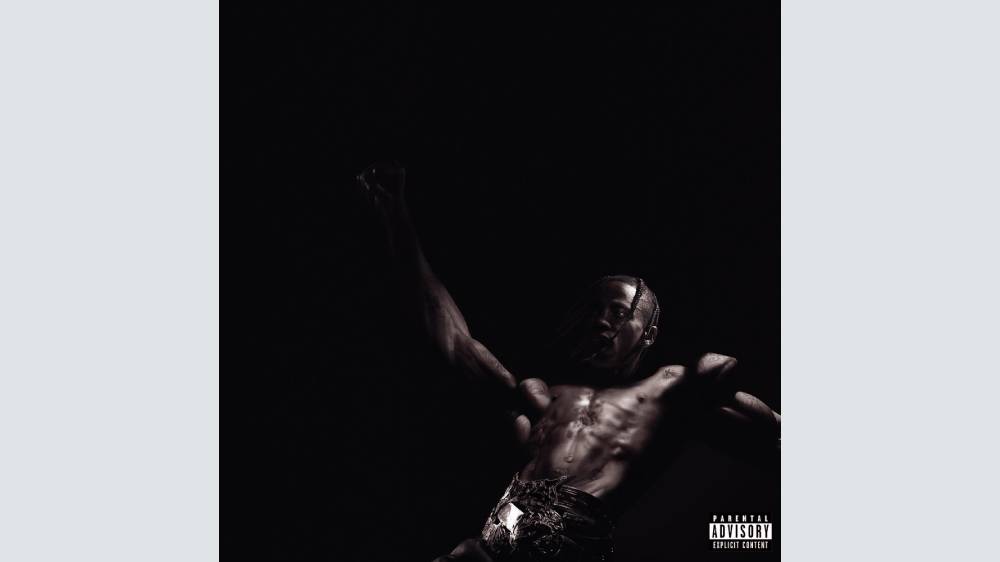In the same way that Travis Scott’s debut full-length “Rodeo” polished the sound of his early mixtapes, “Utopia” rejuvenates Travis Scott’s discography. Years in the making, the album expands his sound without drastically changing it — he’s still using his MPC and his vocals are just as distorted as they were ten years ago — but now the stakes are exponentially higher. Then, he was a fast-rising Houston rapper — now, he’s a global superstar whose image was badly tarnished by the deaths at last year’s Astroworld disaster. As his first release since then, “Utopia” couldn’t afford to be anything but a major musical advancement, and he’s delivered.
With 19 full songs over almost 75 minutes, its features and/or contributors reads like a dream Grammy-albums-of-the-year nominees list: Beyonce, Drake, the Weeknd, Bad Bunny, SZA, Kanye West, Future, Pharrell, 21 Savage, Daft Punk’s Guy-Manuel de Homem-Christo, Young Thug, Dave Chappelle, Playboi Carti, Bon Iver, Swae Lee, Kid Cudi, Mike Dean, Metro Boomin, James Blake, Noah Goldstein and a couple dozen more. But the real advancement here is in Scott’s artistry — he’s the sole credited producer on three songs here — and it shows a musical versatility and adventurousness that’s rare for an artist on his level.
Having said that, it’s often reminiscent of his musical mentor and ex-de-facto-brother-in-law, Ye. Scott, along with a number the above artists — most notably Kid Cudi, the Weeknd and Future — are members of the “808s & Heartbreak” generation, rappers crooning amid synthesizers, fusing electronic music with hip-hop. Fifteen years after that album and ten years after Ye’s equally culture-shaking “Yeezus” (which features Scott on three songs), West’s greatest pupil touches on key moments from his mentor’s discography while updating and advancing his own. The biting screams on “God’s Country” call to mind Ye’s shrieks on “I Am a God,” the thunderous drum line of “Circus Maximus” mirrors that of “Black Skinhead,” and Cudi even makes an appearance at the end of “Looove,” just as he does on the back half of “Guilt Trip.” And where West sampled British prog-rock group King Crimson, Scott does the same with British prog-rock group Gentle Giant. Like “808s,” “Utopia” advances melodic hip-hop into new terrain.
Where “Astroworld” plays like different rides and thrills at an amusement park, “Utopia” is more vague — much to its advantage. Scott successfully challenges himself as he joins the frontlines of East Side Buffalo, indulging his love for boom-bap by trying his hand at coke rap, alongside Westside Gunn and the Alchemist on “Lost Forever.” He even calls on Frank Ocean collaborator Buddy Ross to move him toward tender melodies on “My Eyes” and “Parasail,” supported by the Swedish folk of Yung Lean and a spoken-word bit from Chappelle.
“Utopia” is at its best, however, when Travis fosters the collaborations that he’s cultivated over the course of his career. Whether it’s Playboi Carti unveiling a new, Atlanta trap-inspired flow on “Fe!n,” or the Weeknd’s velvety croons on “Circus Maximus,” replacing the thick basslines of “Rodeo’s” “Pray 4 Love” with prismatic synthesizers, “Utopia” updates and reimagines his past. Even the album’s closer, “Til Further Notice,” continues the low-frequency trip-hop of “Mile High,” James Blake, Metro Boomin and Scott’s last collaboration all together on Blake’s 2019 album “Assume Form.”
In a 2021 interview, Variety asked Scott what he’d been listening to lately. He said Bjork and Houston instrumental alt-rock trio Khruangbin, and that musical adventurousness and diversity is vividly on display here. Where “Astroworld” brought spectacle, “Utopia” brings subtlety and innovation.
Read More About:
Source: Read Full Article
